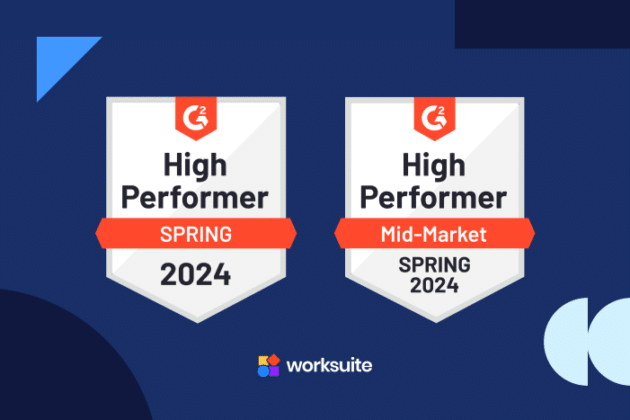
How to work with remote contractors


Many organizations choose to use remote contractors to fill gaps in the skillsets of their internal teams, and to help work on projects and assignments. With the rapid rise in remote work over the last couple of years, more companies are turning to professional freelancers as an alternative to hiring more in-house employees.
We take a look at what you need to know when you’re thinking about making your first remote contractor hires.
The rise of remote work
In America alone, studies predict that 22 million people will be working remotely by 2025 – and many of these will be freelancers and contractors. Since COVID, this number is accelerating, with many people declining to return to the daily grind of office life and time-consuming commutes.
In addition, many employees have decided to take their existing skills and go freelance – meaning the global talent pool for contractors across all industries has increased the ability for organizations to find quality freelance talent.
But despite the unstoppable rise of remote work, hiring managers continue to face resource issues. A recent study found that:
- 61% of teams lack either the people or skills to complete their work
- 52% of teams have had to cancel or delay projects due to lack of talent
- 58% of hiring managers struggle due to limited resources and support
The study also found that many organizations are hiring independent talent to help fill these gaps in their internal teams.
- 73% of managers who see the benefit in remote work are hiring independent contractors
- 48% of hiring managers are working with independent talent
Hiring remote contractors doesn’t need to be difficult, but there are a few things to consider before you start working with freelancers – both in your own country, and overseas.
What is an independent remote contractor?
Remote workers can either be independent contractors or employees, meaning they’re either employed by your company or not. While these lines can often blur and cause problems for both the contractors and the business that hires them, there’s a difference between the two.
A remote contractor is hired to provide a specific service – either to a deadline or for a fixed period of time. The contractor signs a specific agreement and works out the terms of their contract for an agreed rate.
On the other hand, remote employees work directly for your company, usually across regular hours each week. Many countries have brought in laws that define exactly what contractors are, and the penalties for misclassifying your employees as contractors can be steep.
A true remote contractor should:
- Be able to work their own hours
- Be able to do their work from anywhere in the world
- Be engaged by your business for a set period of time
- Identify themselves as a freelancer or contractor
- Work only on the project(s) they’re assigned to
- Be able to work for other organizations, as well as yours
- Be able to carry out their work without needing training or supervision
- Submit invoices and not take a salary
- Take care of their own taxes and insurance
Hiring your first remote contractors
There’s a few key things to think about when you’re hiring your first remote contractors.
Budget
First, you’ll need to figure out your budget. Be clear about this when you’re speaking with potential contractors. If your budget is on the low end, you’ll need to be realistic that you might not be able to afford top contractors, but you also need to ensure you’re getting the best possible talent for the budget that you have allocated.
Project scope
Contractors don’t take kindly to scope creep! Before you start working with any contractor, you’ll need to clearly define the scope of the project, how long it will take, what’s involved, and when the contract will end.
Project payment
Freelance contractors tend to have their own preferences about how they work in relation to payment. Be sure to discuss this with them before they begin any work.
These are the most common payment methods for remote contractors:
- Hourly rates – you contractor is paid per hour that they work for you
- Day rates – your contractor gets paid by the day
- Project based – a total amount is agreed by you and the contractor for the completion of a project
- Retainer – an agreement where a contractor works a specific number of hours per month (or quarter) for you, or provides you with specific deliverables.
- Up front payment – some contractors will require full or partial payment up front before they begin any work for you
- Payment on delivery – contractors require full payment when the project is complete.
Communication
Ensure there is an open line of communication between your contractors and managers so that questions and problems don’t get buried in email threads.
Will your freelancers be able to reach out to you with project management tools and asynchronous communication tools like Slack, Notion, or Asana? Or do you have a centralized platform like Worksuite to keep all your communication with remote contractors in one place?
Clear communication is the secret to successfully working with remote contractors, especially if they’re in different countries and time zones from your business.
Set expectations around communication with your contractors as soon as you start working with them to avoid any problems further down the track.
Document everything
It will make life easier for your remote contractors if all your company documentation is easily accessible to them.
Documents such as freelancers handbooks, brand guides, company policies, privacy policies, and so on are useful to your remote contractors and will help them get off to a good start working with your organization.
Paying your remote freelancers
Make sure you have systems in place for your freelancers to invoice you and get paid promptly. Freelancers talk to each other, and your organization doesn’t want to develop a reputation as a slow payer (or worse) a non-payer!
Streamlining your processes between contractors and your accounts team will go a long way towards building trust and loyalty in your independent contractors.
There are many payment gateways available to pay your remote contractors, whether they live in the same town or on the other side of the globe. Stripe, Wise, Paypal, bank transfers, and wire transfers are all popular forms of payment for freelancers.
Ensure you discuss payment options with your contractors, and double check their payment details are correct to avoid sending money to the wrong people.
Keep compliant
When you work with remote contractors, you’ll need to fill out any applicable forms to keep your organization on the right side of the law.
All countries’ rules and regulations around hiring contractors vary – so it’s best to consult an accounting or legal specialist to ensure your organization understands how to keep compliant.
Remote contractor taxes
Your organization doesn’t need to make tax payments for your remote contractors. Any freelance contractor you hire is responsible for managing and paying their own taxes in their own country of residence.
Ready to start working with remote contractors?
Managing your remote contractors doesn’t need to be difficult. Worksuite makes it easy to source, onboard, manage, and pay remote contractors around the world, while ensuring that your organization keeps compliant at all times.






